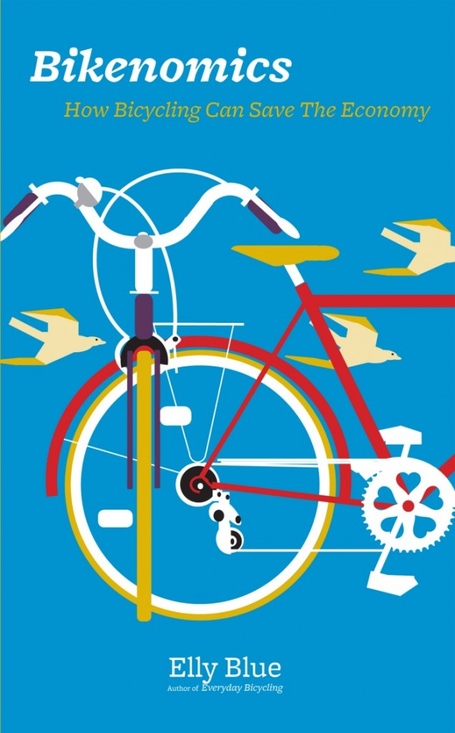

Bikenomics is fact-based but personal, serious but fun, well-researched but readable. Like Tom Paine, Blue set out to show how truths we were raised to believe-streets are for cars, bicycling is an intrusion, cars predominate because they make economic good sense-are really assumptions that defy common sense. “Elly Blue has written the Common Sense for the bicycling revolution. "Blue's book is rational, fully footnoted-and, in the main, persuasive." "A cleanly-stated assessment of a complex issue." It's a future, I realized, I'd really like to see."

"Blue's book helped me better frame my own reasons for riding, and got me thinking a lot about what a more bike-centered future could look like. Instead, she's talking about looking to a different future." "Blue isn't talking about 'fixing' the economy we have right now.

"From global warming and access during power outages to general health and safety, she makes a strong case for the bicycle as the best choice for getting around." "Written with the wide-eyed fervor of a true believer, Blue yearns for a future where the streets seethe with bicyclists like Seattle’s streets during a Critical Mass rally" And she does it with a witty, persuasive voice that makes this refreshingly jargon-free book a pleasure to read." Publishers Weekly Elly Blue provides practical advice for living a happier, healthier life on two wheels but also makes a compelling case for reconnecting with your community in a very authentic way. "Bikenomics will make you wonder how cities ever decided to plan for cars in the first place. Alissa Walker, Urbanism Editor, Gizmodo "A real look at our transportation costs and how bikes can help create healthier humans, boost local economies, and foster a sense of community." Catie Gould & Emily Guise, Bike Portland Ī concise argument in book form for why and how bicycling can kickstart local economies through boosting development and growth, and strengthen local communities by offering the freedom of a viable, non-car transportation option. Until Elly's book I would have unlikely to have considered cycling from anything other than an alternative commuter vehicle to my car or a weekend warriors conveyance for MAMILs and male sports cyclists.

She writes from a whole lot of other perspectives other that the typical college educated white male perspective that normally prevails in standard cycling advocacy writings. She develops ideas of much lower cost of infrastructure. A fabulous eye opening book on the economic benefits of catering to cycling instead of autoists.


 0 kommentar(er)
0 kommentar(er)
